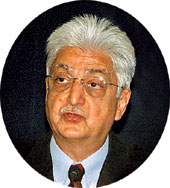
Calcutta: The 'Big Three' financial model drawn up by the boards of India, England and Australia three years ago has been replaced by a plan to vastly reduce the Board of Control for Cricket in India (BCCI)'s share of International Cricket Council (ICC) revenue and offer identical amounts to seven of the game's full member nations.
Under the new financial model and governance structure, the split of revenues from the ICC for the period 2016 to 2023 will be altered to address the imbalance currently favouring the three boards.
The measure was passed by 13 votes to one, the governing body said in a statement on Thursday after its meetings at its headquarters in Dubai.
This was after a week of intense negotiations that saw the BCCI's opposition to change outmanoeuvred by the collective will of the rest.
"Based on current forecasted revenues and costs, BCCI will receive $293m across the eight year cycle, ECB $143m, Zimbabwe Cricket $94m and the remaining seven full members $132m each. Associate members will receive funding of $280m. This model was passed 13 votes to one," the ICC said in a statement.
The BCCI had earlier rejected an additional $100 million offer from ICC chairman Shashank Manohar.
While this distribution is not a complete rollback to the equal funding from ICC events that full members used to receive, it is a considerable distance from the $440 million the BCCI stood to earn under the 'Big Three' model. The distribution to the ECB has reduced marginally from around $150 million, while Cricket Australia's share is similar to what it previously received, albeit now in line with those awarded to South Africa, Pakistan, New Zealand, Sri Lanka, Bangladesh and West Indies.
Battles over the ICC events financial model have been drawn out over a period of years, starting with the ascension of Shashank Manohar as the governing body's chairman following the exit of his predecessor Narayanswami Srinivasan, considered the 'Big Three' model's chief architect. Manohar stunned the cricket world by stating his intent to resign earlier this year, but was cajoled into staying on until the ICC annual conference in June, where the above changes are set to be ratified.
"This is another step forward for world cricket and I look forward to concluding the work at the annual conference," Manohar stated in an ICC release. "I am confident we can provide a strong foundation for the sport to grow and improve globally in the future through the adoption of the revised financial model and governance structure."
The governance structure of which Manohar spoke was the other major outcome from this week's round of meetings in Dubai. The ICC's constitution is to be extensively redrawn, with numerous changes to the way the global game is run and the way that the performance and eligibility of member nations are assessed.











